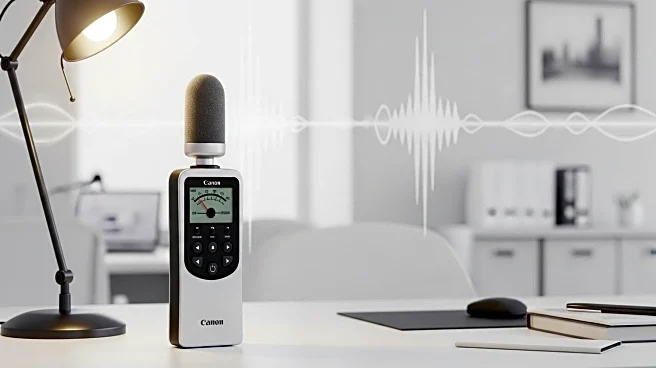What is the story about?
What's Happening?
Transport for London (TfL) has faced criticism for its limited enforcement of byelaws against passengers causing nuisance noise on public transport. Since 2020, only four prosecutions have been made for loud phone conversations or playing audio on devices, with fines totaling £705. The Liberal Democrats have called for 'real consequences' for those breaking these byelaws, while Reform UK has labeled TfL's enforcement record as 'dire.' Despite launching a campaign to encourage headphone use, TfL confirmed there would be no additional enforcement officers deployed. The transport authority maintains that most passengers are considerate, using enforcement as a last resort.
Why It's Important?
The criticism of TfL's enforcement practices highlights ongoing concerns about passenger experience on public transport. With 70% of customers reportedly finding loud music and phone conversations disruptive, the issue affects daily commutes and overall satisfaction with public transport services. The calls for stricter enforcement and higher fines reflect a demand for improved regulation to ensure a more pleasant travel environment. This situation underscores the balance between voluntary compliance and the need for effective enforcement to maintain public order and comfort.
What's Next?
TfL's current approach focuses on raising awareness rather than increasing enforcement, which may lead to continued dissatisfaction among passengers. The Liberal Democrats and Reform UK may push for legislative changes to introduce higher fines and stricter enforcement measures. TfL's response to these criticisms and its future actions will be closely watched by passengers and political stakeholders, potentially influencing public transport policies across England.
Beyond the Headlines
The debate over nuisance noise enforcement on public transport raises broader questions about public behavior and the role of transport authorities in regulating it. The effectiveness of awareness campaigns versus punitive measures could set precedents for handling similar issues in other public spaces. Additionally, the cultural dimensions of noise tolerance and public etiquette may influence how these policies are perceived and implemented.















